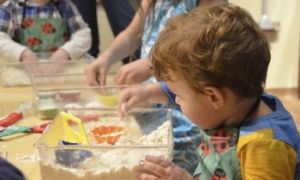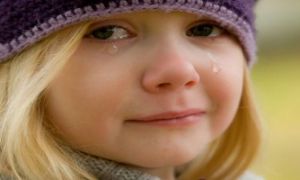

Using recycled plastic bottles, these leaf lanterns are mess free and showcase the colours and shapes of different types of leaves around us.
Outdoor spaces hold great significance in early education and care settings which is why they are highlighted in Learning Environments, one of eight pedagogical practices put forward in the EYLF. It further says that Outdoor learning is a feature of Australian learning environments. They offer a vast array of possibilities not available indoors. One of the ways that outdoor spaces do this is by allowing children access to elements of Nature. The following article provides the importance of natural elements and strategies educators can use to enrich children’s play and learning experiences.
The Grass Pot Matching Shapes is a fun matching activity for children that enables them to learn 2d shapes. Children should match the grass shape to the correct shapes plant pot. This is a fun way to incorporate nature into the learning too.
Cactus Shadow Match Cut and Paste is a great activity for children to identify the right shadow cactus with their matching image. This activity enables children to develop visual discrimination skills, hand-eye coordination and learning to analyse the shapes of images to match.
The NQS mandates services to take an active role in caring for the environment and contributing to a sustainable future. According to NQS Standard 3, Element 3.2.3, “The service cares for the environment and supports children to become environmentally responsible.” The following article provides information on Understanding Sustainability, Sustainability Ideas For Early Childhood Services and Sustainability Learning For Children.
The Life Cycle Of A Frog Information Posters provide the stages a frog goes through from being an egg to being a frog. A life cycle repeats itself, or goes in a circle, for each new generation of life. A frog goes through five stages of life. In each stage, it changes and grows. These are great to use as a display or a simple way to explain the life cycle of a frog to children.
The Senses Scavenger Hunt enables children to use their senses to complete a scavenger hunt. For older children they check off each item they find listed in the scavenger hunt and for young ones Educators can read each one out. This is a great way for children to explore nature.
The Nature Posters are beautiful images that show nature such as animals and plants. These posters can be used as a display within the learning environment and these can also be added to the Science and Nature area.
The Insects and Bugs Pom Pom Mats are a great fine motor skills activity for children. It enables children to place pom pom balls on the correct spot on each insect and bug. This helps children with developing their fine motor skills as well as their hand/eye coordination. Children can choose the same colour as the insect or bug or add multiple colours. This activity can also be used with playdough as well.
This is a very simple and easy nature activity for children. Get children out on a leaf hunt to collect a variety of different leaves. Using leaves children will be making a cute little leaf man using their creativity. At the same time, it has a lot of learning involved too. Children will also learn about the trees, different types of leaves and more!
 Open ended questions cannot be responded to with one word answers such as yes or no. These types of questions enables a child to provide… Read More
Open ended questions cannot be responded to with one word answers such as yes or no. These types of questions enables a child to provide… Read More
 During your child’s preschool years, an important milestone begins to emerge. This is the development of pre-writing skills. Pre-writing skills are used to encourage, develop… Read More
During your child’s preschool years, an important milestone begins to emerge. This is the development of pre-writing skills. Pre-writing skills are used to encourage, develop… Read More
 Open ended materials enables children to play freely. They are objects that have no rules to follow, use or function. Raw materials that can be… Read More
Open ended materials enables children to play freely. They are objects that have no rules to follow, use or function. Raw materials that can be… Read More
 An Acknowledgment of the Country is a way of showing respect for the Traditional Owners and can be given by both non-Indigenous people and Aboriginal… Read More
An Acknowledgment of the Country is a way of showing respect for the Traditional Owners and can be given by both non-Indigenous people and Aboriginal… Read More
 Language plays an important role in a child’s development. It enables a child to communicate effectively with their family, learn at school, socialize with friends,… Read More
Language plays an important role in a child’s development. It enables a child to communicate effectively with their family, learn at school, socialize with friends,… Read More
 Like adults, children have to deal with their own stress in life. Moving house, starting a new school, preparing for a new sibling - these are… Read More
Like adults, children have to deal with their own stress in life. Moving house, starting a new school, preparing for a new sibling - these are… Read More
 Playdough is such a versatile material. It provides numerous benefits to children as they manipulate it, it is safe and soothing and provides children with… Read More
Playdough is such a versatile material. It provides numerous benefits to children as they manipulate it, it is safe and soothing and provides children with… Read More
 Teaching children about sustainability enables them to appreciate and respect the natural environment. Early childhood services can provide meaningful hand on learning experiences in order… Read More
Teaching children about sustainability enables them to appreciate and respect the natural environment. Early childhood services can provide meaningful hand on learning experiences in order… Read More
 Recycling is an important concept that teaches children to care for the environment. It encourages children to be responsible and show a growing appreciating for… Read More
Recycling is an important concept that teaches children to care for the environment. It encourages children to be responsible and show a growing appreciating for… Read More
 When children apply paint to paper, glue things together, or pound a lump of clay, they experiment with colour, shape design and texture.
Read More
When children apply paint to paper, glue things together, or pound a lump of clay, they experiment with colour, shape design and texture.
Read More

Sensory play at a young age is very important for children’s development. It gives children an...
See more...
Improving parental engagement in early childhood education is crucial for enhancing children's learning and development...
See more...
Emotional or physical distress can add to the challenges of caring for children in a...
See more...© 2009-2025 Aussie Childcare Network Pty Ltd. All Rights Reserved.

